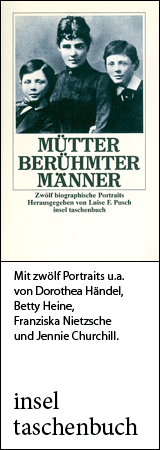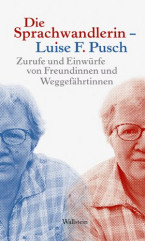Biographies Anna Magdalena Bach
born on September 22, 1701 in Zeitz, the Holy Roman Empire
died on February 27, 1760 in Leipzig, the Holy Roman Empire
German singer; second wife of Johann Sebastian Bach
265th anniversary of her death on February 27, 2025
Biography
She was employed as singer at the princely court of Anhalt-Cöthen and could have been famous in her own right. But in 1721, at the age of twenty, she married Johann Sebastian Bach, sixteen years her senior, renouncing a career for herself and instead creating a home in which her husband’s work – and consequently his fame – could flourish. She cared for his four surviving children from his first marriage and moved with him from Cöthen to Leipzig when he was appointed cantor at St. Thomas Church there – a position that also involved tedious teaching duties at the Thomas School. During the twenty years that followed, she gave birth to thirteen children, seven of whom did not survive childhood. In ten years (between 1723 and 1733), she gave birth to ten children, only three of whom survived. Anna Magdalena Bach died impoverished ten years after her husband's death in Leipzig.
Regrettably, these are the only facts that can be documented. Judging by the paucity of information, her contemporaries as well as posterity apparently considered her “not worth mentioning.” Nevertheless, these facts do allow us to reach several conclusions.
If she had not loved Sebastian, she would not have given up her own promising musical career for his sake. As a wife and mother, she led a physically and emotionally demanding life. If one adds to her completed pregnancies the probable miscarriages, she was almost constantly pregnant for as long as she was able to conceive. Sebastian was not known for his restraint.
In addition to this large family, the household also accommodated many of her husband's students, sometimes for months at a time, as well as numerous guests who sought contact with Bach and had to be looked after by his dear wife. When Father was working, she had to ensure peace and quiet — which, given his constant composing at home, was also a constant strain and challenge for both mother and children. When her husband returned home after teaching at St. Thomas School, exhausted after dealing with undisciplined students and scheming superiors all day, the equally stressed mother had to act as a caring wife and create a relaxing and comforting atmosphere to support her husband's great work. She copied many of the notes he wrote down by hand, working probably late into the night. When he went on trips, she usually stayed at home. When their children died, he found comfort and distraction in composing. And where did she find her comfort? In another pregnancy? Hardly.
When Bach died, there were eight pianos as well as many other valuable instruments in the house, but there were no significant financial reserves for his widow. Bach's “great” sons, for whose education and training their father had spared no effort (nor had their mother, no doubt!), apparently felt unable to provide Anna Magdalena with adequate financial support. After nine years of widowhood, she died in poverty at the age of 58 in February 1760.
(Translated with DeepL.com; edited by Ramona Fararo, 2025.
Please consult the German version for additional information, pictures, sources, videos, and bibliography.)
Author: Mechthild Winkler-Jordan
If you hold the rights to one or more of the images on this page and object to its/their appearance here, please contact Fembio.



